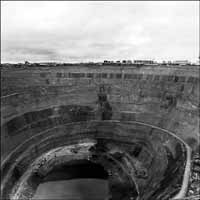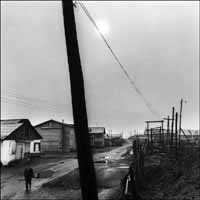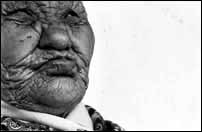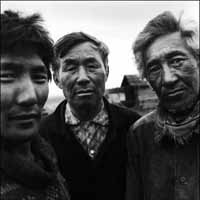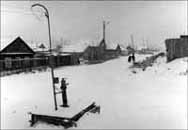| e-mail Andreas Horvath | |
|
The sky is high |
|
| and | the Tsar is far |
 |
Ironically, this old Siberian saying has not lost any of its relevance. Maybe it is most true today, considering Moscow's difficulties in keeping the great empire from falling apart. The Tsar has always been severely concerned about the decreasing influence he had on his Eastern-most people. Then and now... |
|
Six time-zones seperate Moscow from Jakutsk, the capital of Russia's biggest Republic Jacutia. When people west of the Ural go to bed, a new day will already have begun for the inhabitants of Jacutia. |
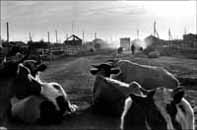 |
 |
The golden domes of the Kremlin and the palaces of St. Petersburg nowadays attract western film-crews and weekend-tourists. The visitors hardly realize that these impressive buildings have all been financed by the treasures of the vast hinterland. And just like Western movie facades these buildings say little about the reality they hide. |

